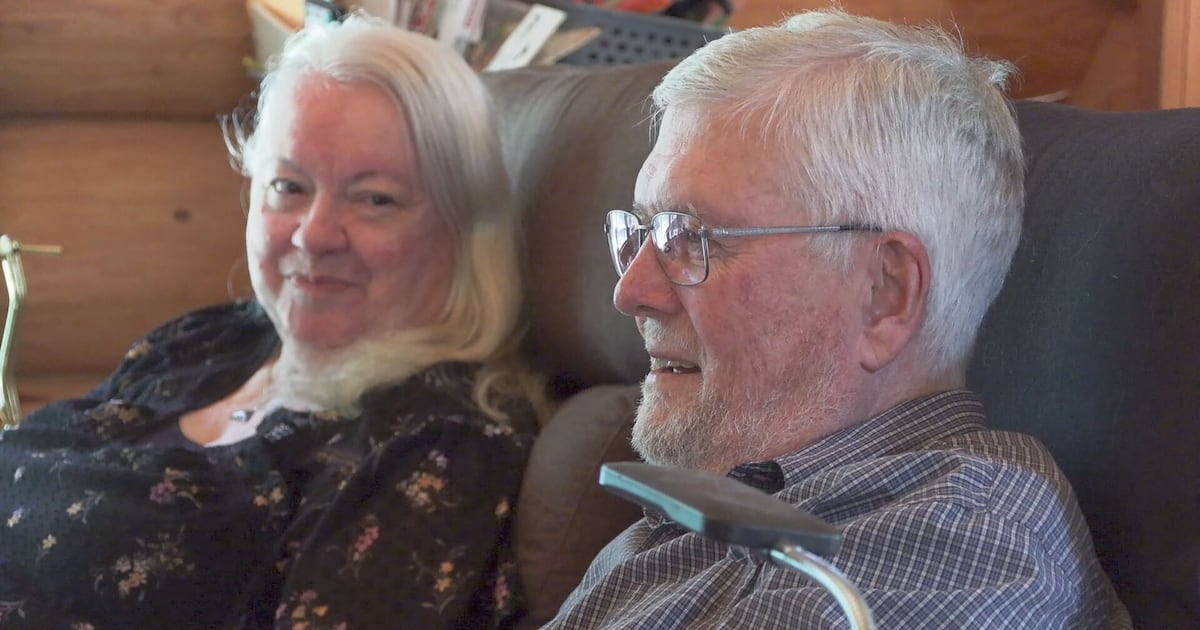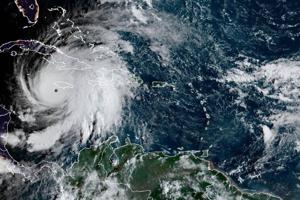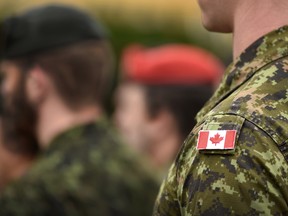Health
Veterans Affairs Denies Major’s Kidney Transplant Travel Request

A retired Canadian major has had his request for support from Veterans Affairs rejected, raising concerns about the treatment of veterans facing serious health issues. The decision follows a plea for assistance with travel costs associated with a kidney transplant that is linked to his military service.
Bruce Sand, a resident of Shawnigan Lake, has been diagnosed with a type of kidney disease believed to be connected to his service with the Canadian Armed Forces in Haiti. In his appeal to the Canadian government, Sand sought help to cover the travel expenses for a friend in Zimbabwe who has volunteered to donate a kidney to him when a transplant opportunity arises. Sand expressed his frustration, stating, “I think it is fundamentally inconceivable and inexcusable that Veterans Affairs is treating a veteran of 28 years of service to Canada in this manner, when I most need their service.”
The potential donor, Mike Gurney, confirmed his willingness to help Sand in an interview conducted in August. Gurney remarked, “He said, ‘Are you sure about that?’ I said, ‘Yup, I’m sure about that.’ Bruce is somebody I really admire.” Despite this support, Veterans Affairs Minister Jill McKnight conveyed in a letter to Sand that the department lacks the authority to cover health-related travel expenses for third parties; funds are designated solely for the patient receiving treatment.
Sand argues that taxpayer dollars should be utilized to facilitate his transplant rather than prolonging his reliance on dialysis. He stated, “Those taxpayer dollars are better spent in getting me a transplant than having me on dialysis for the rest of my life. Regardless of where the money is coming from, it’s still a taxpayer’s dollar. And I don’t think they’ve done that cost-benefit analysis.”
In response to the situation, Jeff Kibble, Sand’s Conservative Member of Parliament for Cowichan-Malahat-Langford, has encouraged Sand’s medical team to seek special authority through Veterans Affairs. Kibble emphasized the urgency of Sand’s case, highlighting the life-threatening complications he faces and the unconventional nature of the transplant pathway. “Canada’s duty of care to those who have served knows no bounds,” Kibble stated.
Despite the setback, Sand remains resolute in his pursuit of assistance. He plans to appeal the decision and advocate for changes to Veterans Affairs regulations to better support veterans in similar situations. “I will not give up. I believe I owe it to those that I served with to continue with this fight until some sort of resolution is made,” he asserted.
The case has sparked a broader discussion about the responsibilities of Veterans Affairs in addressing the health needs of those who have served the country. As Sand continues his efforts, he hopes to shine a light on the complexities veterans face when navigating the healthcare system.
-

 World4 months ago
World4 months agoScientists Unearth Ancient Antarctic Ice to Unlock Climate Secrets
-

 Entertainment4 months ago
Entertainment4 months agoTrump and McCormick to Announce $70 Billion Energy Investments
-

 Lifestyle4 months ago
Lifestyle4 months agoTransLink Launches Food Truck Program to Boost Revenue in Vancouver
-

 Science4 months ago
Science4 months agoFour Astronauts Return to Earth After International Space Station Mission
-

 Technology2 months ago
Technology2 months agoApple Notes Enhances Functionality with Markdown Support in macOS 26
-

 Top Stories3 weeks ago
Top Stories3 weeks agoUrgent Update: Fatal Crash on Highway 99 Claims Life of Pitt Meadows Man
-

 Sports4 months ago
Sports4 months agoSearch Underway for Missing Hunter Amid Hokkaido Bear Emergency
-

 Politics3 months ago
Politics3 months agoUkrainian Tennis Star Elina Svitolina Faces Death Threats Online
-

 Politics4 months ago
Politics4 months agoCarney Engages First Nations Leaders at Development Law Summit
-

 Technology4 months ago
Technology4 months agoFrosthaven Launches Early Access on July 31, 2025
-

 Top Stories1 week ago
Top Stories1 week agoFamily Remembers Beverley Rowbotham 25 Years After Murder
-

 Entertainment4 months ago
Entertainment4 months agoCalgary Theatre Troupe Revives Magic at Winnipeg Fringe Festival





















